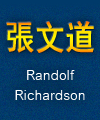
|
|
|
- Canadian Charter of Rights and Freedoms
(Follow this link for more information and a downloadable version...) - The "veil of ignorance" from "A Theory of Justice" by John Rawls
(See chapter III, section 24, pages 118-123...)
Item 1 lays out the fundamental rights of everyone in Canada, and it is imperative that politicians take this into consideration (at minimum, the first 31 sections) when developing and enacting laws, bylaws, regulations, and policies to ensure they work in concert with our rights instead of restricting or overriding them.
Defending existing rights is always easier than recovering rights after they've been lost, taken away, or limited in some way. Imposing laws that confict with or contravene our Charter-protected rights can be a waste of fiscal and legal resources, especially in the courts when Charter-rights challenges erupt as a result.
Item 2 refers to a key concept in "A Theory of Justice" (by contemporary philosopher John Rawls) called "the veil of ignorance," which is an essential intellectual tool. Wearing this metaphorical "veil of ignorance" causes lawmakers to consider that they could be put into any role in society after their new laws go into effect, and so they should think more thoroughly when designing legislation.
As part of a government that legislates in a justice system that emphasizes fairness and that treats everyone as "equal under the law" (according to section 15 of our Charter of Rights and Freedoms), you will very likely find this philosophical practice to be a helpful aid in ensuring that you're making laws, bylaws, regulations, and policies that are better overall for all members of society.
(I may add to this list in the future.)
All rights reserved. All trademarks are the property of their respective owners.











